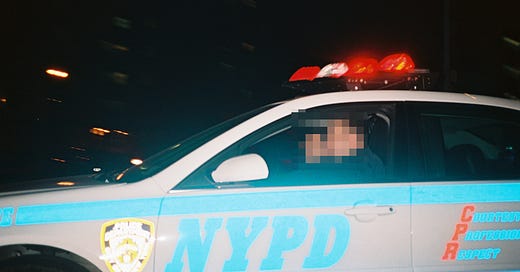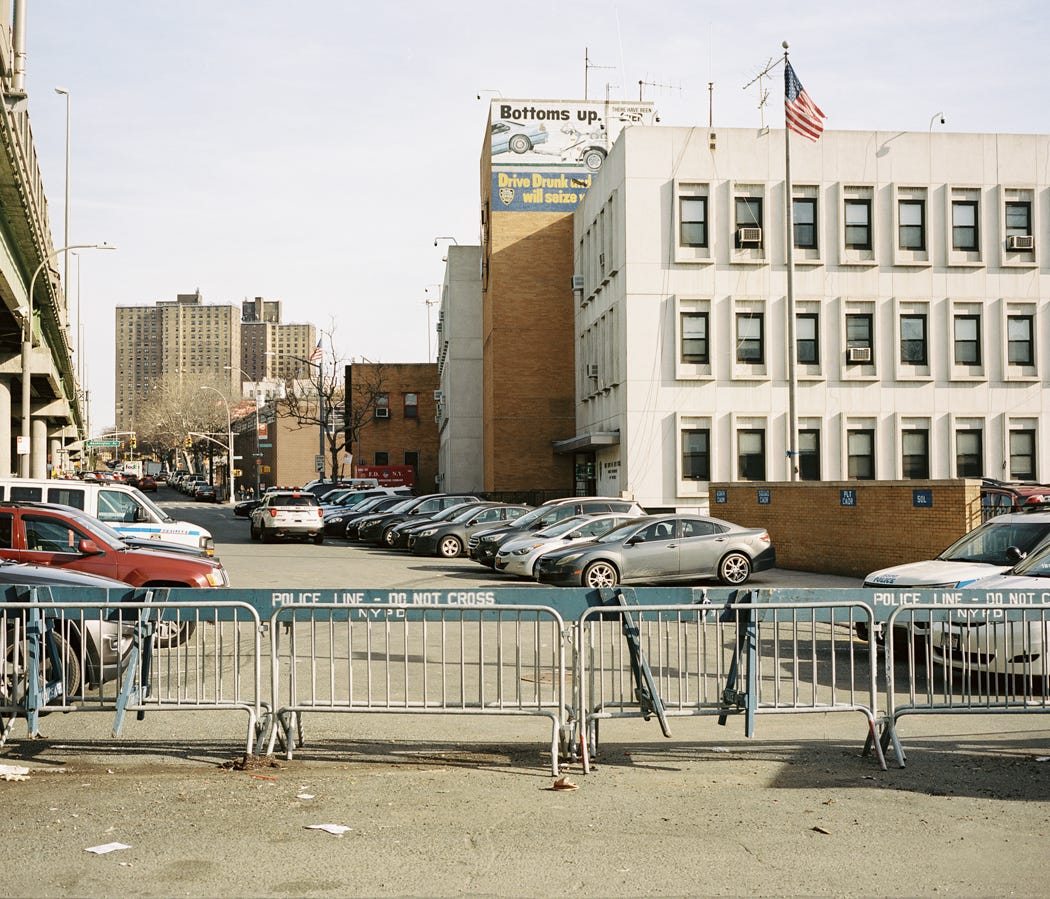What I learned researching every drunk driving cop for three years
I tracked 217 crashes and DUI allegations involving NYPD Officers
A few years ago I started a relatively simple spreadsheet: every time an NYPD officer was busted for drunk driving, I’d log their name, rank, blood-alcohol content (if available), and a tally of those hurt or killed if the officer crashed their car.
It’s a problem reporters have poked at for years. Unless they crash spectacularly enough to grab headlines, kill someone, or get caught drunk-driving more than once, officers rarely face serious penalties for driving under the influence. The typical rap is a yearlong probationary period – stay out of trouble, and you’ll be fine.
I collected 217 alleged drunk driving incidents involving NYPD officers dating to 2001. I used press clips, an NYPD disciplinary database, and in a few cases, an obscure federal road safety tracker. Here’s what I learned:
You should probably refuse the breathalyzer. Despite the associated license suspension, $500 fine, and the loss of 15 vacation days, most officers refuse the test. The lack of evidence from a breath test likely helped Police Officer Angelo Hurtado, who remains on the force despite hitting and killing two men in Ozone Park after a night of alleged boozing in 2021.
Hurtado is far from alone. Most officers who drive drunk remain on the force. By my count, there are 109 active members of the NYPD who’ve been busted for alleged drunk driving. Eighteen of those officers have gone on to achieve a higher rank in the department, while a handful were demoted.
You’ve got to really fuck up to get a DUI as an officer. In the majority of cases I researched, there was a significant precipitating incident that resulted in a subsequent DUI arrest. Many of them were car crashes. Others involved a cop firing his gun at another driver, or an officer falling asleep outside an elementary school with his penis exposed and the engine running. While I don’t have a dataset of DUI arrests among the general population, research suggests that officers are likely to get away with stuff John Q. Public wouldn’t.
It’s a deadly problem for cops and bystanders. Since 2001, 33 people have died as a result of alleged or suspected drunk-driving by NYPD officers. Fourteen of those killed were cops -- sometimes driving alone, sometimes killed when their colleague lost control.
The crashes – and the coverups – have been an issue for years.
Take the case of Joseph Gray, who plowed in to a family in Sunset Park after hours of boozing at a strip club. He demanded to be breathalyzed – but responding officers refused, likely knowing it would hurt his case. Eighteen years later, after former officer Rohan Shaw plowed into another car and killed Joanna Dixon, responding officers used an uncalibrated Breathalyzer and failed to take a timely blood sample, according to a lawsuit.
There are other hints that more still needs to be done to tighten up police investigations after crashes involving officers.
After an off-duty officer hit and killed a Queens woman in 2021, responding cops didn’t order a breath test until nearly two and a half hours after the collision, according to a report from the Attorney General’s Office of Special Investigation:
“In the state of New York slightly more than 30% of fatal car crashes are alcohol-related. In accordance with NYPD’s Patrol Guide section 217.02 civilian drivers are breath-tested on scene close in time to the collision even if they do not exhibit signs of impairment or intoxication. This same standard should be applied to off-duty (or on-duty) police officers involved in motor vehicle incidents, especially collisions that have resulted in death.”
Putting stricter controls in place could save the lives of the public and police officers alike.
The NYPD did not respond to a request for comment.






